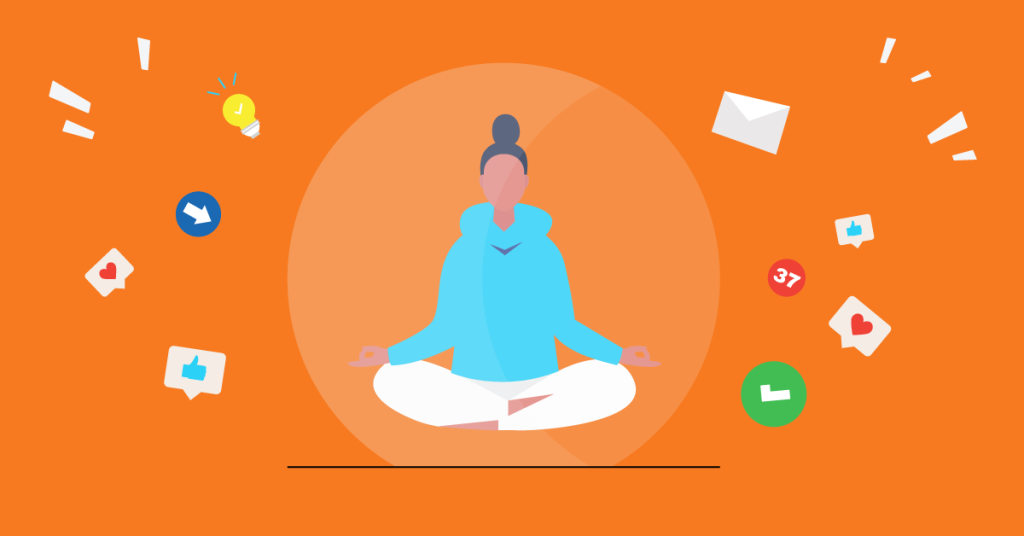Key Points:
- Excessive screen time contributes to stress, distraction, and reduced focus among students.
- A digital detox helps students reset their minds, improve concentration, and enhance academic performance.
- Practical strategies such as screen-free zones, scheduled breaks, and mindfulness activities make detoxing manageable.
- Long-term success relies on self-discipline and creating a healthy balance between digital use and personal growth.
We are in an era where smartphones, social media, and constant notifications dominate student life, productivity can easily take a back seat. Many students struggle to manage time effectively, with digital distractions often standing in the way of academic success. A digital detox—a deliberate break from electronic devices—has proven to be one of the most effective ways to boost focus, mental health, and overall performance. By creating healthy boundaries with technology, students not only improve their academic outcomes but also develop habits that lead to long-term success.
What is a Digital Detox?
A digital detox refers to taking intentional time away from electronic devices, especially those that encourage constant connectivity such as smartphones, laptops, tablets, and social media platforms. It does not mean abandoning technology entirely but rather creating balance. For students, it offers the opportunity to reset mentally, regain focus, and channel energy into more meaningful activities such as studying, exercising, or connecting face-to-face with peers.
Why Digital Detox is Essential for Students
- Reduces Stress and Anxiety: Studies show that excessive screen time is linked to higher stress levels, poor sleep, and burnout.
- Improves Focus and Concentration: Without constant notifications, students are better able to engage deeply in their academic tasks.
- Boosts Academic Performance: More focused study sessions translate to better retention and improved exam results.
- Encourages Healthy Habits: Detoxing gives students more time for exercise, reading, or pursuing hobbies that enrich their lives.

Practical Strategies for a Successful Digital Detox
1. Create Screen-Free Study Zones
Designate specific spaces, such as the library or a desk at home, where phones and gadgets are kept away. This helps students train their minds to associate those spaces with productivity only.
2. Use the Pomodoro Technique
Encourage students to study for 25–30 minutes and then take a 5-minute break—preferably without screens. This balances focus with rest and reduces the urge to scroll endlessly.
3. Schedule Social Media Time
Instead of banning social media completely, set fixed times during the day for usage. This prevents random scrolling and helps students maintain control over their digital habits.
4. Replace Screen Time with Mindfulness Activities
Encourage journaling, reading, outdoor walks, or meditation as alternatives. These activities refresh the mind and promote emotional well-being.
5. Practice Tech-Free Evenings
Encourage students to disconnect from screens at least one hour before bedtime. Better sleep quality leads to sharper focus and improved memory retention.
The Long-Term Benefits of Digital Detox
Students who practice digital detox regularly experience:
- Better mental clarity and reduced stress.
- Stronger self-discipline and time management skills.
- Increased productivity in academics and personal growth.
- Improved relationships through more face-to-face interactions.
Over time, these habits transform students into self-reliant, focused, and resilient individuals who can thrive in any environment.
Final Thoughts
A digital detox is not about rejecting technology but about using it wisely. For students, it is a proven strategy to reclaim focus, improve productivity, and develop healthier lifestyles. By embracing practices such as screen-free study zones, mindful breaks, and tech-free evenings, students can strike a balance between technology use and personal growth. Ultimately, long-term success is built on self-discipline—the ability to control one’s habits and prioritize what truly matters.
Frequently Asked Questions (FAQs)
1. How long should a student’s digital detox last?
Even short breaks of 30 minutes to a few hours daily can significantly improve focus and productivity.
2. Does a digital detox mean avoiding all devices?
No. It means creating intentional limits and prioritizing meaningful activities over endless screen time.
3. Can digital detox improve exam performance?
Yes. With reduced distractions, students retain information better, study more effectively, and perform well in assessments.
4. How can parents support their child’s digital detox?
Parents can set healthy family tech rules, encourage offline hobbies, and model balanced digital behavior.
